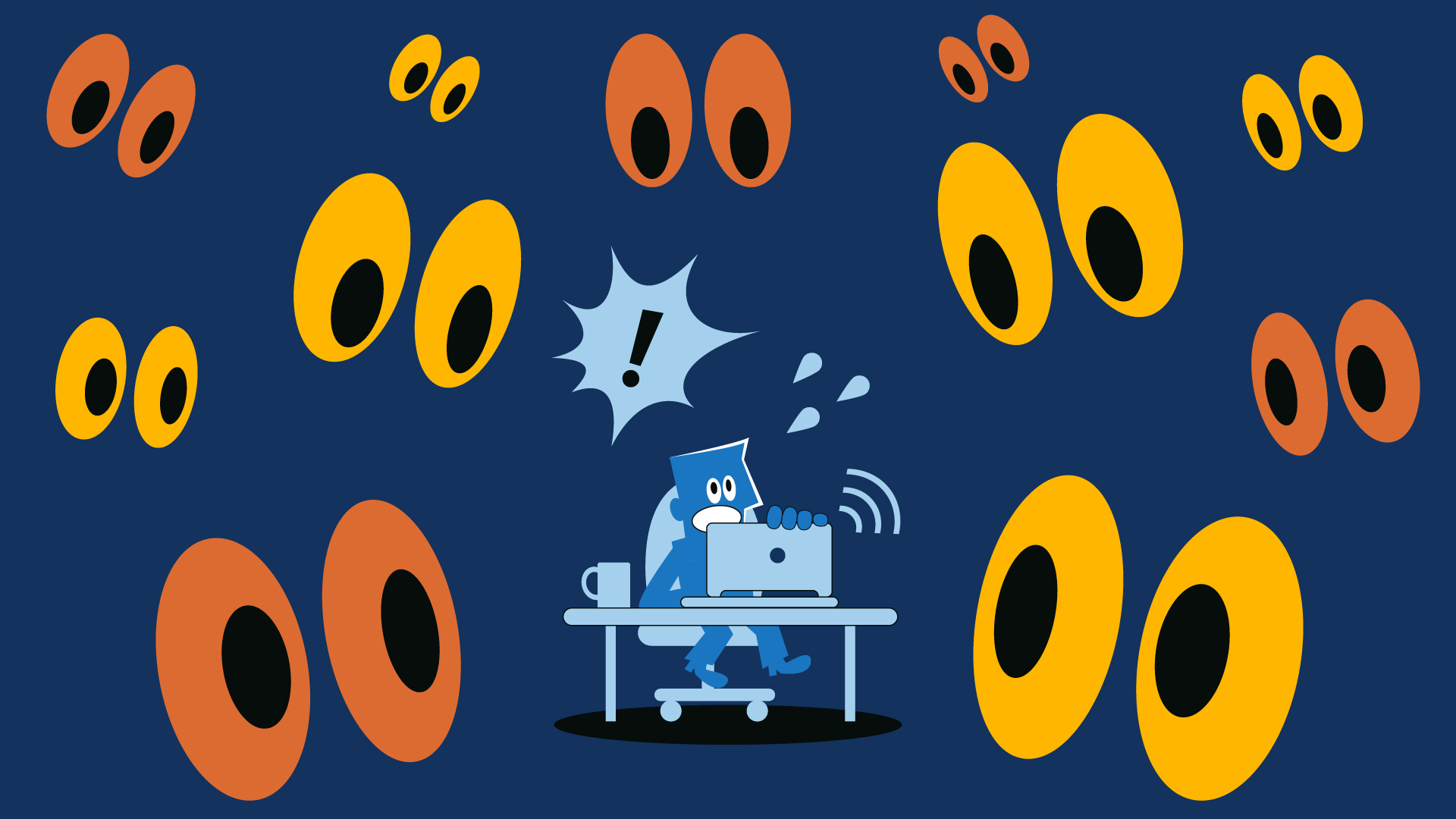Businesses Beware: Scammers Are Everywhere
Brenna Connolly
October 25, 2024

We all have a story – or know someone with a story – of being scammed. Maybe it was that one time on your trip to Paris when you fell for that tall tale about the blind girls, or maybe your card got skimmed at some poorly lit gas station pump. If you have been scammed or swindled yourself, you know how dumb you feel afterward; it always seems so obvious in hindsight. You replay all the moments you could have acted differently as you lay awake at night. But the thing about scammers is that they are often really good at what they do. They are preying on your psychology, your social conditioning, your fear. As technology advances, so too do the scams.
It’s not just your personal accounts that are at risk either. Your business accounts may also be in jeopardy. In recent years, there have been an increasing number of ways for fraudsters to weasel into your small business’ financials.
Here are some of the scams we’ve heard of recently:
AI-Voice Scams
Starling Bank out of the UK warned that sophisticated scam artists are now using AI to impersonate the voices of your loved ones. Using just three seconds of voice recordings from social media videos or voicemails, scammers can generate an AI-cloned voice and lure you out of untold dollars by posing as your friends or family. Although many people aren’t even aware of the existence of these scams, thousands of people have already been targeted.
It’s recommended to establish a safe phrase distinct from other passwords to share with your family and friends to prevent this scenario from happening to you.
Wire Transfers
The FTC reports that Americans lost $343.7 million to wire transfer scams in 2023, making it one of the most popular means of scamming. Generally speaking, wire transfers are secure as long as you know who you’re doing business with. The danger comes when scammers impersonate a trusted entity and convince owners or employees to initiate a wire payment.
Someone sends you a check for services rendered, but they overpay and ask you to wire the extra amount. Then their check will bounce, and you’ll be out both sums. After submitting a business loan application, you get a request to wire a processing fee. You might also be asked to confirm your bank account information, only to get robbed again.
Wire transfers are completed immediately and can seldom be reversed. It sounds obvious now as you’re reading this, but if it comes up, the entity you are dealing with will be energized, angry, or urgent. They might appear legitimate. They are going to try and confuse you. Don’t wire money to any associate without first scrutinizing their information. Perhaps check in with another colleague or sleep on it before sending over your hard-earned funds.
Phishing
Phishing attempts have gotten even more difficult to spot as hackers have incorporated spoofing into the mix. That means that they can mask how their incoming phone call looks on your phone to make it appear that they are in fact calling from a reputable organization – your bank, for example.
That is exactly what happened to Sam Heller of Cedar Hill, Texas. She received a call from what appeared to be Chase Bank’s fraud investigation department. They told her there had been suspicious activity on her account, that someone was trying to purchase something on her card from a Best Buy in Arizona. The caller then instructed her that she was going to get a text message from Chase and that she should read back the numbers.
Sam told Fox affiliate KDFW-TV, “So, I get a text message from Chase Bank, and she said okay, it looks like it’s coming from your account ending in blah, blah, blah, and she knew exactly the account number.”
Heller, thinking it was real, did what she was instructed to do, and her account was zapped. $1,200 in small purchases with cash back at Walmart stores and $1,400 taken in ATM withdrawals.
Barbara Corcoran, Shark Tank star and NYC real estate queen, even lost nearly $400,000 in a phishing attack. They can happen to anyone.
How To Spot A Scam
Here are some signs that something fishy’s going on:
As mentioned, scammers are really good at what they do. If you’re caught in a situation that seems out of the ordinary, take a timeout. Explain the situation to a colleague. Ask the caller if you can call back using a number published on your bank’s website or on your card. Many institutions communicate primarily through mail. A bank would never call you and ask for your personal information. The Social Security Administration is not trying to get ahold of you via phone.
Scammers will prey on your professionalism and good manners. Being direct and setting a boundary is not having poor manners. As a business professional, it is commendable that you would do due diligence and protect your business and employees from fraud. Stay vigilant.
If, despite all your best efforts, you are the victim of a scam, please talk about it. It might feel embarrassing, but others need to be aware of the latest schemes employed by fraudsters. Sharing your story can protect others. Additionally, please consider reporting the scam to the BBB and/or the Federal Trade Commission to raise awareness and protect your community.
At Fuzzy Duck, we’ve got your small business’ back. For more small business strategies, read more of our blog.
